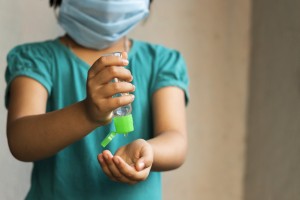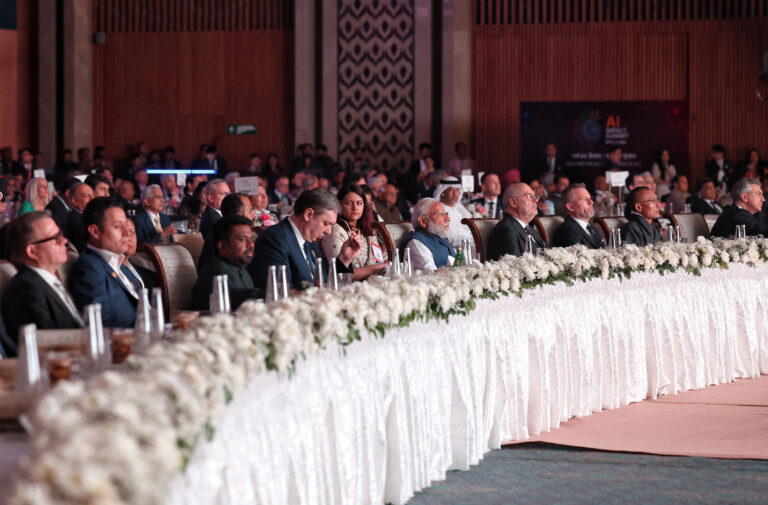
Rome/New York: Antimicrobial drugs are key in the treatment of diseases and their use is essential for both human, animal and plant health. However, the misuse and overuse of antimicrobials is a major concern for the emergence and spread of antimicrobial resistant micro-organisms. Due to Antimicrobial resistance (AMR), drug-resistant infections are placing an ever-increasing burden on human and animal health as well as the environment.
Antimicrobial resistance in animal pathogens is already affecting domesticated animals and as a result impacts livestock production, which undermines food safety and security. In addition, antimicrobial-resistant pathogens can develop and spread along food chain and move between animals, humans, and the environment. It means they may also be in the food we eat and water we drink.
In fact, AMR is becoming an increasing threat to global health, food safety and security, potentially also leading to substantial socio-economic damage, and to turn this around, the Director-General of the Food and Agriculture Organization of the United Nations (FAO), Qu Dongyu, called for coherent, swift and decisive action on April 29, 2021.
“We need to keep antimicrobials working. Simply waiting for new drugs is not an option because of the extraordinary cost and complexities of research and development. Without effective, efficient medicines, the spread of infectious diseases threatens to escalate out of control,” said the FAO Director-General.
Qu spoke at the day-long High-Level Interactive Dialogue of the General Assembly on AMR, which saw the participation of world leaders, UN experts, business and civil society leaders to discuss practical steps to address AMR in the midst of COVID-19 recovery plans, and urged for strengthened multi-sectoral collaboration and capacity building, and the promotion of prudent and responsible use of antimicrobials across agriculture and food sectors. The Director-General also underscored the need to tackle the double challenge of meeting demands for animal proteins – expected to rise by 45 percent by 2050 – while reducing the risks of AMR.
AMR threats can only be successfully tackled if everyone works together. At country level, this means a range of ministries – from health, food, agriculture to environment – working together alongside the private sector and other non-state actors.
In this regard, the FAO Director-General said he was encouraged by the increasing number of countries who have introduced exemplary policies, took concrete actions and showed strong political will to combat AMR. Qu underscored the need to promote an effective and coordinated One Health approach – which recognises the strong links between humans, animals and the environment and the need to tackle global health threats holistically – at all levels, involving all related parties.
At global level, with far- and wide-reaching impacts, a leading example of collective efforts to fight AMR is the work of the FAO/OIE/WHO Tripartite Collaboration on AMR with UNEP. To accelerate actions under this approach on the ground, the Tripartite calls for more funds, in-kind contributions and resources to scale up operations globally and at country level.
“We are determined to the noble mission for One Health World without hunger and poverty,” concluded Qu. This includes the establishing of initiatives such as the One Health Global Leaders Group on AMR and the Partnership Platform for Action Against AMR that pave the way for shared vision and collective global actions to tackle AMR.
It may be mentioned that being a multidisciplinary organization, FAO plays a key role in providing integrated and coherent assistance to countries in regulating and monitoring the use of antimicrobials and in preventing and minimizing the development of resistance across all sectors.
In addition, FAO’s experience in capacity development allows it to respond to countries’ requests for support on the use of antimicrobials and the prevention and control of AMR, among other issues. To support its Members, FAO developed a series of tools to support food and agriculture sectors in managing AMR. One such tool is the FAO Assessment Tool for Laboratories and AMR Surveillance Systems (FAO-ATLASS) – a tool for assessing and defining targets to improve national AMR surveillance systems in the food and agriculture sectors. Another, the Progressive Management Pathway for Antimicrobial Resistance (FAO-PMP-AMR) – a guide that helps Members put their National Action Plans on AMR into action.
– global bihari bureau





